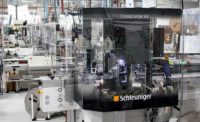Good news: America is now luring as many factory jobs back from overseas as it’s losing to continued offshoring. That’s the assessment of the Reshoring Initiative, a nonprofit group that encourages companies to move work back to the United States.
According to the Initiative, 40,000 U.S. manufacturing jobs were added in 2013 by the return of work that was previously moved offshore. That was about equal to the number of jobs lost from the continued movement of work abroad. In comparison, 150,000 manufacturing jobs left in 2003, while only 2,000 were brought back.
If anecdotal evidence is any indication, the reshoring trend is continuing this year. For example, Ford Motor Co. is investing $168 million to move production of its 2016 F-650 and F-750 medium-duty trucks from Mexico to Cleveland. And, Whirlpool Corp. is moving production of commercial washing machines from Monterrey, Mexico, to Clyde, OH. Approximately 80 to 100 new jobs will be created in Clyde during the next three years to support the relocation.
There’s more: Santa’s Own, which makes artificial Christmas trees, announced it will reshore some manufacturing from China to its factory in Brunswick, OH. The company cited rising raw material costs and higher labor rates overseas as the reasons for bringing business back to the United States. ARCA, a maker of money handling equipment, is reshoring production from Italy to a new assembly plant in Mebane, NC. Vermont Castings, a manufacturer of wood stoves and gas grills, is also bringing jobs back.
Ironically, China itself is creating jobs here—a lot of them. Chinese companies invested a record $14 billion in the United States last year, according to the Rhodium Group research firm. Collectively, they employ more than 70,000 Americans, up from virtually none a decade ago.
Narrowing wage gaps, falling energy prices and fluctuating currency values are encouraging Chinese companies to invest here, and state and local officials are happy to welcome them. Southern states have been especially aggressive, touting low labor and land costs. For example, Golden Dragon Precise Copper Tube Group, based in Xinxiang, China, recently opened a $100 million factory in Pine Hill, AL, that will employ more than 300 people.
As welcome as all this is, reshoring should be undertaken with care. Manufacturers seeking to reshore may have trouble repatriating equipment, finding skilled labor and securing local suppliers. They may also find that consumers are unwilling to pay a premium for “Made in the USA” products.
For its part, Congress could do more to further the cause. For example, the United States has the highest corporate tax rate—40 percent—in the world, according to accounting firm KPMG. The average rates for Asia and Europe are 21.91 percent and 19.68 percent, respectively. Laws regarding tax havens, offshore deferral and profit shifting could also be reformed to encourage domestic investment. Let’s clear the beach for reshoring.


